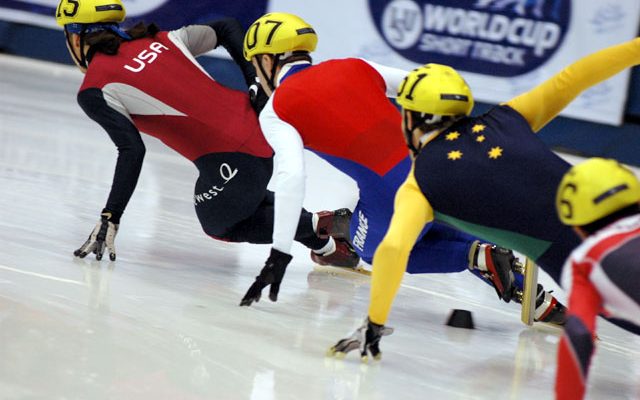A recent legal ruling in Europe has changed the competitive landscape of organized sports, and expanded the rights and opportunities for athletes. Last December, two speed skaters successfully challenged long-held beliefs about the rights of athletes to participate in independent or non-federation sanctioned competition, by pursuing a complaint against the International Skating Union (ISU) for unfair and restrictive regulations.
At the heart of this matter is that the two athletes, Niels Kerstholt and Mark Tuitert, would have been penalized by the ISU for competing in an event which the ISU had not sanctioned. The event in question had been trying to organize skating competitions, but did not yet have the official sanction from the ISU, which is the international Olympic-recognized federation for skating. The new event was promoting much more prize money than other ISU-sanctioned events, and even though the organizer had been negotiating with the ISU, the ISU refused to grant its support, placing the athletes and the event in jeopardy.
After three years of legal work and investigations, the European Union’s Commissioner for Competition vindicated the athletes. By imposing severe penalties on athletes racing in skating competitions it does not sanction (including banning racers from the Olympics and World Championships), the commissioner determined that the ISU violated EU competition law. But what does this mean for competitive cycling and other related Olympic-sanctioned sports?
First, it greatly expands an athlete’s options for competing and earning a living. The Commission’s ruling is now a precedent which prevents international federations from penalizing athletes for competing in events which these federations have not certified. If you compete in events which are professionally organized, well-supported, and with proper oversight from sports officials – but which lack a certificate or sanction from the Olympic-chartered sports federation, or perhaps are certified by a rival sports organization – you cannot be penalized.
While it is not clear yet if the ruling can be supported globally, it has big impacts for you as a competitive cyclist in the European market right now. You may be able to participate in races and events which aren’t licensed by a national federation. And the ruling actually creates an atmosphere of open competition, in which sporting organizations can develop new events which can greatly expand the career opportunities and earning potential for athletes.
This is a great example of athletes standing up for their rights, and with the right support and advice, finding a solution which creates economic opportunities and benefits all athletes across sport. With our partners at The World Players Association and EU Athletes, The Cyclists’ Alliance is dedicated to helping you understand the changing landscape of sports law and your rights as a competitive, professional cyclist.
For a more detailed account of this legal case and how it improves your athlete rights, visit UNI Global Union’s World Players Association to read lawyer Matthew Graham’s excellent analysis. And if you are not yet a member of The Cyclists’ Alliance, please join today!

